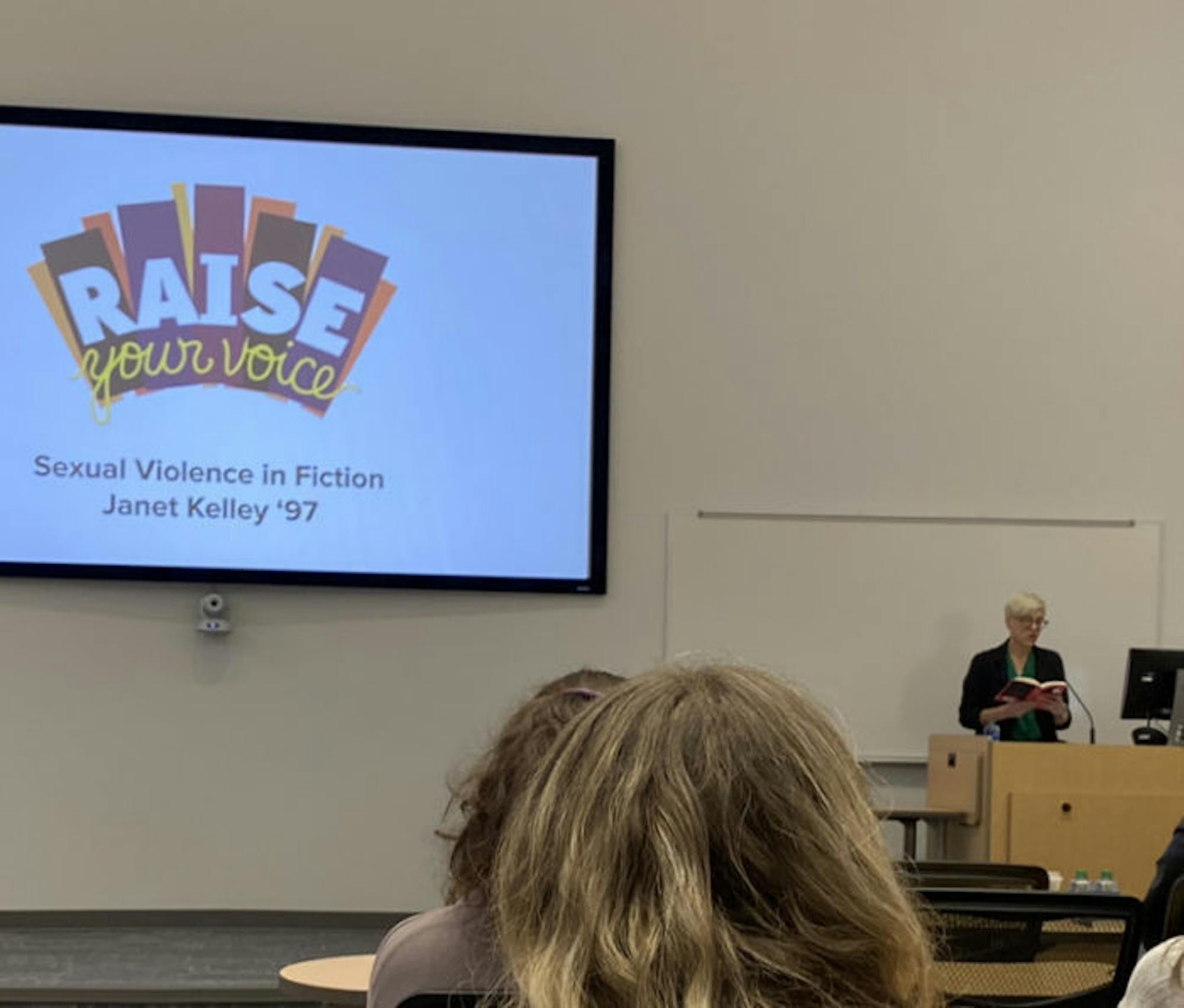Editor’s note: This editorial includes discussions of sexual violence. A list of sexual assault reporting options and on-campus resources can be found on the Notre Dame, Saint Mary’s and Holy Cross websites.
Author and Saint Mary’s College alumna Janet Kelley visited the campus Friday as part of the Raise Your Voice Sexual Violence Symposium to read from her novel “Taint" and discuss the role of fiction in addressing sexual violence. Kelley first touched on the heavy nature of the topic.
“Before I begin my prepared remarks, let me remind you that this is a safe place in which I plan to talk about uncomfortable things,” she said. “If at any point you need to step out of the room for a moment … please do so.”
Kelley said before her visit to Saint Mary’s, she gave herself “reading assignments." Her first reading assignment was Chanel Miller’s memoir, “Know My Name." Though it was written after her own book, she said its intense story about sexual assault is partly why she is apprehensive about selling her own book.
“I understand in a visceral way that a book about rape, a fiction about sexual assault, may not be possible for everybody to digest,” she said.
Kelley’s second piece of homework, she said, was Eve Ensler’s work the “Vagina Monologues," which had a great influence on her when she was in college.
“When I left South Bend, I was able to quote the ‘Vagina Monologues’ by heart instead of the New Testament,” Kelley said.
The works by Ensler and Miller have similar effects on the reader, Kelley said.
“Both texts make you want to protest, listen to women, speak your own story or take action to right the wrongs women face,” she said.
After discussing Ensler’s impact on her life, Kelley read a poem by Ensler titled “My Revolution Begins in the Body.” The poem explores the idea of women's empowerment and the many ways in which this revolution plays out. Kelley said she finds Ensler's work “deeply inspiring and poetic” and that it led to the center of the story of her own novel.
The story Kelley writes in “Taint” follows a high school boy named Luke, who is raped and only tells his best friend, Rebecca, about it.
“Over time, I became deeply concerned with the plight of male victims in particular,” Kelley said, “Especially those who suffered an assault in an era that was deeply homophobic. I cannot fully imagine that sorrow and that shame, except, of course, I did imagine it in my book.”
Being forced to keep silent and the perpetuating pain of that silence was a major theme in Kelley’s work.
“This is Luke’s story, his sexual assault story, but he doesn’t even get to tell it. Rebecca does, for better or worse,” she said.
The excerpt of Kelley’s book voices Rebecca’s shock at seeing Luke in a deeply troubled mood, “His eyes are red, swollen … I have never seen him like this." Kelley stopped reading before she finished her intended excerpt.
“I found it would be too difficult for me to read the pages out loud, so I’ll leave it to you,” she told the audience.
After reading, Kelley spoke about her book’s role as a work of fiction. She said there are harms that can be done by writing a work about trauma in a fictional setting that can be “turned off.”
“I can never be sure that my attempt to address male rape meets my own rigorous standards for fiction," she continued. "That standard is to do no harm.”
Finishing her prepared remarks, Kelley celebrated the overall movement of sharing stories that offer people like Luke a way to find a voice.
“Today, there are wonderful, empowering, diverse voices being celebrated in such a sense," she said. "That is vital work, offering young people possibility models.”
Raise Your Voice: Janet Kelley discusses role of fiction in addressing sexual violence
Janet Kelley, a Saint Mary's College alumna, read from her novel, "Taint," which tells the story of a high school boy's experience with sexual assault.








